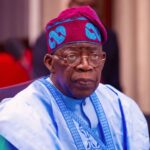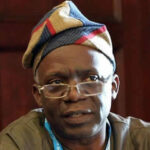As students of political science we were taught that power is essentially amoral. In other words, a study of power should not be predicated on simple morality of good or bad.
Example, a man who took over power after a bloody coup will not mind executing coup plotters who want to take power from him. He will also consider his action a patriotic duty because they are enemies of the state. And he is not obliged to tell anybody who the state is.
In their studies, political scientists also try to avoid drawing conclusions based on morality rather than reality. Example, a company that specialises in manufacturing weapons has as its motto: “Peace is our Business”. This may sound laughable. But when the chief executive of the company was asked to explain the seeming contradiction, he said that they were promoting peace by making it easier for people to acquire arms for self-defence which would make their enemies think twice before attacking them because they knew the consequences. In other words, to make peace, prepare for war.
Now you know why that bulky boy in North Korea with a unique hairstyle is abusing whoever he wants.
- NIGERIA DAILY: Only A 200% Increment Can Ease Hardship Of Workers-Expert
- Your cries don’t bother me, Wike reacts to video on sacked urban buses’ MD
Obviously, the position of the company must have been informed by the REALISTS’ school of thought. Realists believe in power defined as capacity. Scholars of international relations who believe in the realists’ position call it SECOND STRIKE CAPABILITY; that is the capacity to inflict maximum damage in retaliation when attacked. This deters adversaries from military aggression. For them, the argument whether arms manufacturing or possession is right or wrong does not arise because it is a moral question and they are basically interested in REALITY, not morality.
About two weeks ago, the immediate past National Secretary of the Peoples Democratic Party (PDP), Senator Umaru Tsauri, called a press conference and made his views known on political issues, especially the last presidential election and its tribunal. In a viral video, Tsauri said that the party was cautious in handling Nyesom Wike because he had four “values” that no Nigerian possessed. He said in Hausa, “Wike na da values guda hudu wanda duk Nigeria ba mai irinsu.” In other words, Wike is special. First, he has political and electoral values because he doesn’t lose elections. Second, he has “financial values” because the person you may give N1,000, Wike can give him N1m. Third, “judicial value”.
According to Tsauri, when he was national secretary of PDP for four years, Wike handled 11 court cases and won all. Now the big one. Tsauri said, Wike has “nuisance value” because as he said in Hausa: “Wike ya fi kowa iskanci, ko wane iri.” If you get a person like him, Tsauri further argued, you don’t send him away until you “exhaust all avenues”.
Long ago, I learnt that power defined as influence is neither vertical nor horizontal; it is simply where you find it. Example, if the messenger of a company is a brother to the President of Nigeria, his chief executive will not hesitate to use his influence (power) for the benefit of the company. Now you know what it means when somebody tells you, “Don’t joke with that messenger. He is very powerful.”
An elder in my area wanted a favour from a public officer who impounded his vehicle. He sent some notable people to him but the officer refused. One of his children who was frequenting a bar with the officer went to him and he gladly obliged the request. The elder was surprised and said in Hausa, “Allah mai iko. Ka ga na tura mutanen kirki amma abun bai yiwu ba sai da wannan shashashan ya je. Shegengidanka maganin shegen gidan wani (To God be the glory. I sent responsible people but it was not possible until this fool went on his own. The rascal in your house is the best protection against the rascal of another house).”
I started taking note of the challenges of political participation in Nigeria not long after the late Chief Gani Fawehinmi formed his National Conscience Party (NCP). For the benefit of younger people who were born after his death, Fawehinmi was as solid as the Rock of Gibraltar. Also, Wole Soyinka formed his political party but could not go far. Chinua Achebe joined the Peoples Redemption Party (PRP) in the Second Republic but had to abandon the struggle. Not long ago, Dr Oby Ezekwesile and Professor Kingsley Moghalu joined the bandwagon of “politics abandoned” when they abandoned their presidential ambitions.
Now, the essence of this intervention: should the elite continue to be onlookers in the governance of this country? Is there a way they can participate with minimum compromise on values? Should they adjust a little to the right? Should they accept their fate when they are retired in politics in the same way Wike “retired” the Lion of Ibima? What is the way out beyond the Book of Lamentation, pity party and dogon turanci (big grammar)? I am lost. In the words of the legendary actor,
Jagua: “My head O! My belle O!
Dikko wrote from Abuja.

 Join Daily Trust WhatsApp Community For Quick Access To News and Happenings Around You.
Join Daily Trust WhatsApp Community For Quick Access To News and Happenings Around You.


